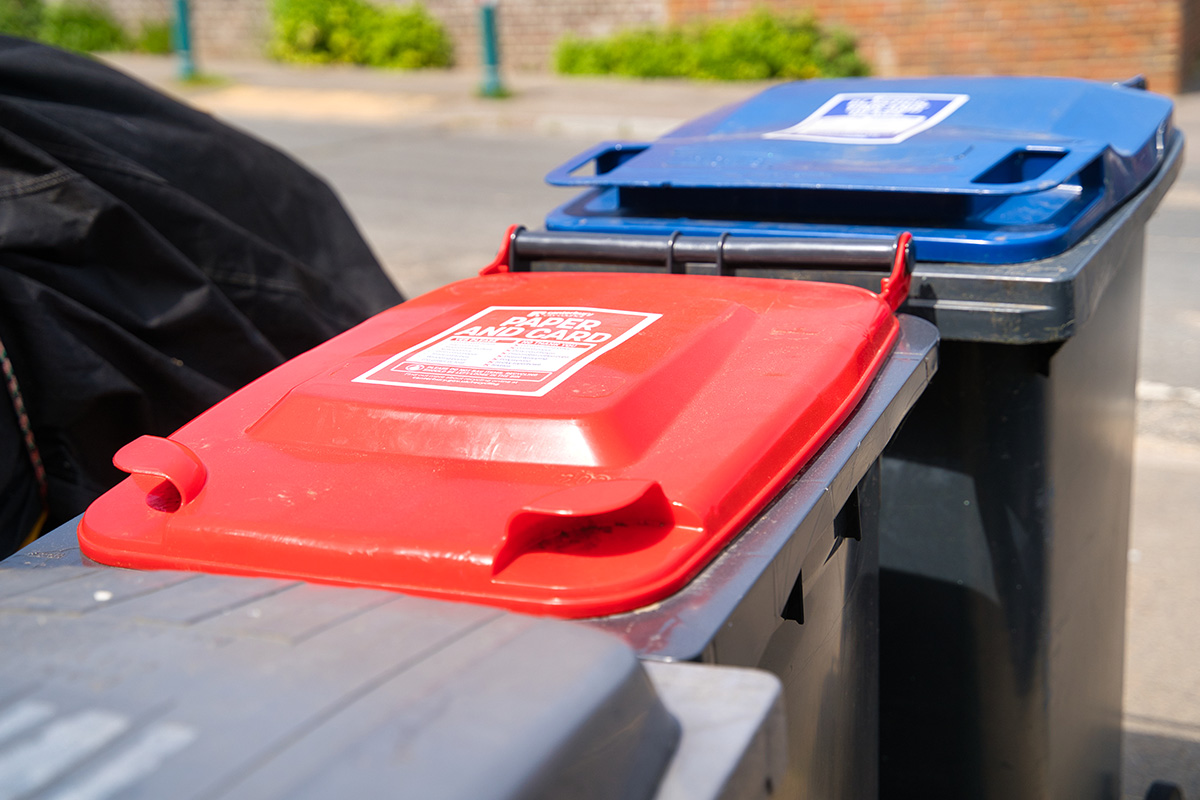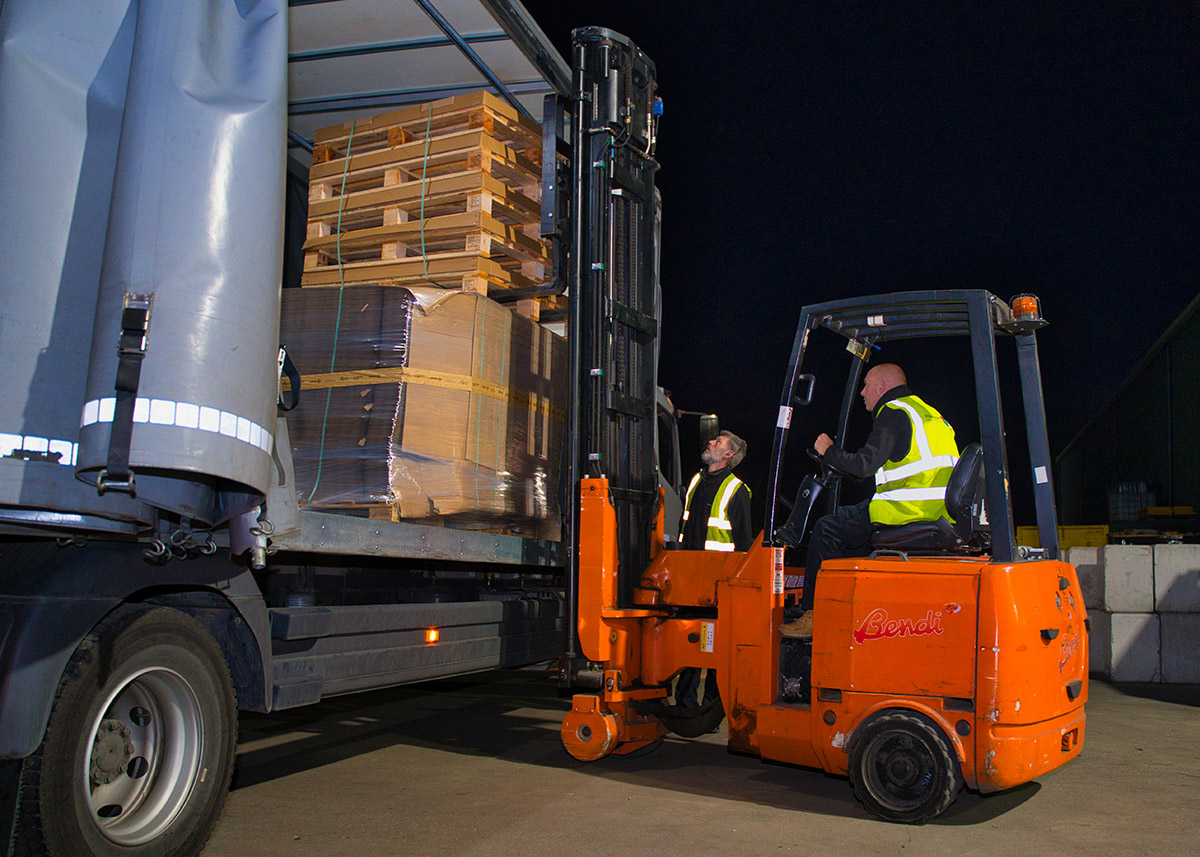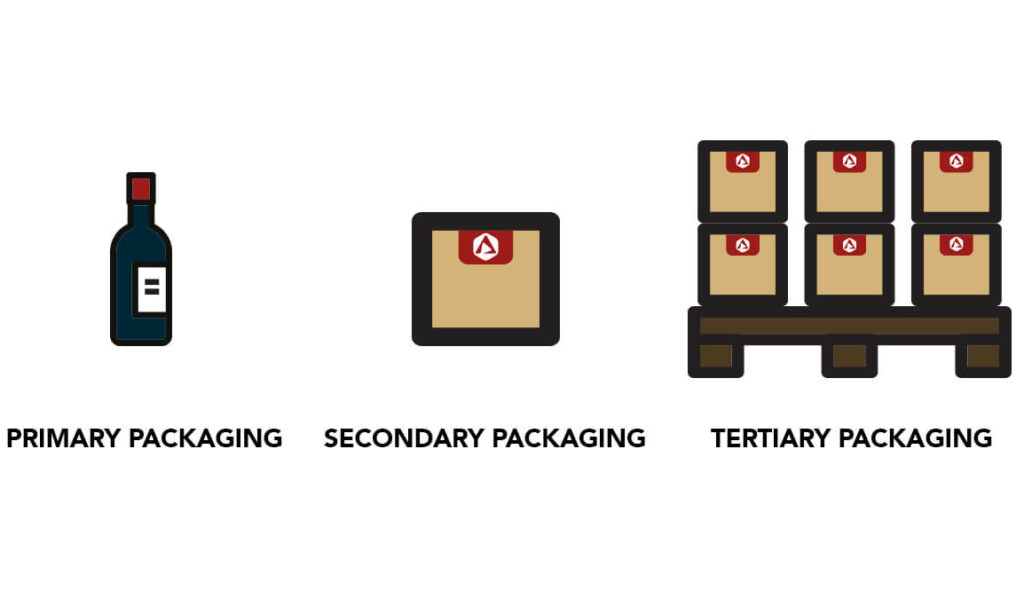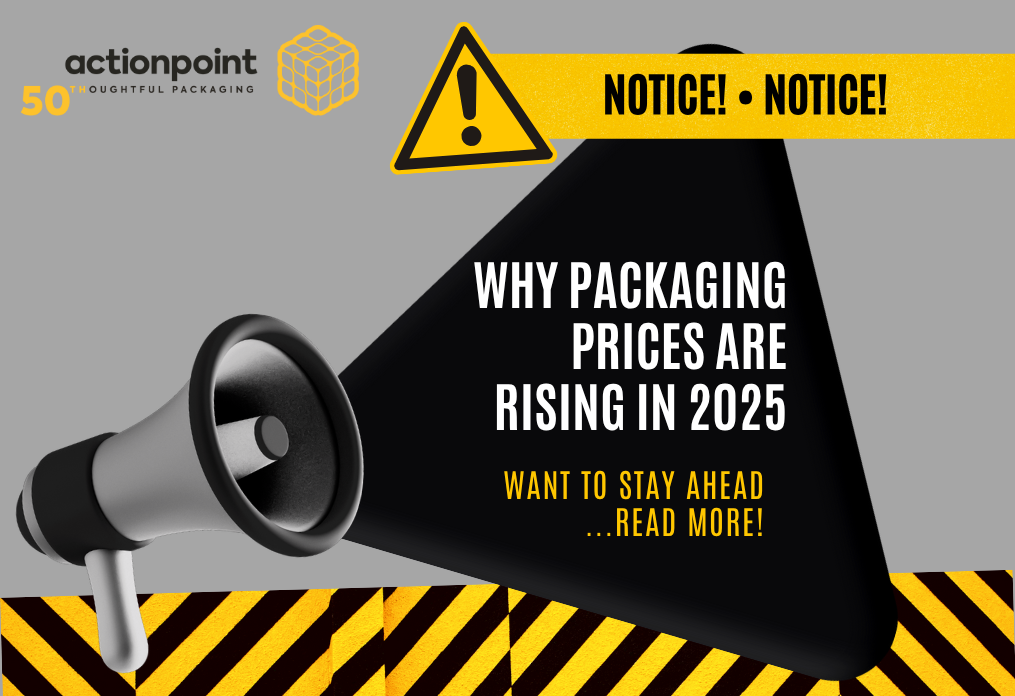Uncertainty is a major cause of stress, which is why the introduction of Extended Producer Responsibility (EPR) for packaging has caused more than a few headaches. This blog explains the story so far and what lies ahead.
EPR explained
Extended Producer Responsibility (EPR) for packaging, occasionally referred to as pEPR, is a new piece of UK legislation coming into force in October 2025. It will make packaging producers take on the whole cost of dealing with household packaging waste. The term ‘producer’ includes organisations that make, handle, use, or sell packaging – except for charities, which are excluded from EPR.
Since 1997, producers have only had to make a contribution towards the ‘end of life’ cost of their packaging. They are given recycling targets based on the amount of packaging they supply, and purchase Packaging Waste Recycling Notes (PRNs) or Packaging Export Recycling Notes (PERNs) from accredited re-processors/exporters to prove these targets have been met.
But this does not come close to the total expense of collecting, managing, recycling, and disposing of packaging waste. At best, it accounts for 10%. The remainder is funded by local authorities through taxpayer money.
The rationale is if producers take on all the financial responsibility for packaging waste, they will be more inclined to reduce the amount of packaging they use. Modulated fees (also known as eco-modulation) will motivate producers to improve the recyclability of their packaging, as they will pay less than producers of unrecyclable or hard-to-recycle packaging.
Litter bins and labels
The broader scope of EPR will include the cost of dealing with packaging waste from public litter bins – but not packaging litter that has been illegally discarded on the street.
There will be mandatory labelling of primary packaging with ‘Recycle’ or ‘Do not recycle’ messages to boost recycling rates, cut recycling contamination, and reduce waste ending up in landfill. Recyclable packaging will also include the Recycle Now ‘swoosh’ mark.
Compostable and biodegradable plastic packaging will have the ‘Do not recycle’ label applied, due to lack of infrastructure and evidence base for these types of packaging.

Ready or not
Extended Producer Responsibility was originally due to launch in 2024 and this year was all about gathering information to shape the scheme. However, in July, the Government announced that EPR payments would be deferred to 2025 to protect consumers and businesses from current high prices caused by persistent inflation. Obligated businesses were initially expected to collect their packaging details from 1 January 2023, but this was pushed back to 1 March. Reports will be submitted online every 6 months by large organisations and once a year by small ones.
If you were caught unawares, you’re not alone. In early March, environmental data specialists Ecoveritas revealed the results of an EPR ‘preparedness’ survey. Of the UK businesses canvassed, 86% described their data collection as a work in progress and the rest admitted they were entirely unprepared.
A similar number, 85.7%, scathingly rated the quality of the Government’s communication about EPR between 1 and 2 out of 10. All respondents rated it below 4.
The Department for the Environment, Food and Rural Affairs (Defra) says EPR is on course for delivery, but there is a long way to go. The design of the scheme and delivery plans are still being developed, fees won’t be determined until 2025, and modulated fees introduced at some point after that.
EPR unrest
Retailers and trade bodies have expressed support for EPR in principle but aren’t comfortable with its current guise. In particular, the cost to producers, which Defra estimates will be £1.7bn per year.
In March this year, the British Retail Consortium (BRC) and Food and Drink Federation (FDF) wrote to Prime Minister Rishi Sunak asking him to intervene in the plans for EPR. The same month, BRC, FDF, M&S, Unilever, and others, met with Environment Secretary Thérèse Coffey to raise their concerns. The following week, they wrote an open letter to Coffey calling for EPR to be delayed.
On 21 April, BRC bluntly announced that EPR must go back to the drawing board, with retailers describing the policy as “deeply flawed.” And, on 3 May, Labour MP Dame Nia Griffith called a Westminster Hall debate on EPR, where she raised several key problematic issues as briefed by BRC.
One bone of contention was the expense of EPR, which would not only prevent producers from making necessary investment but also increase prices for consumers during a cost-of-living crisis. FDF estimated that consumers could pay up to £60 a year per household – the equivalent of 12 days of food and non-alcoholic drink for the lowest-income families.
Another key argument was the lack of clarity over how EPR funds would be ringfenced, prompting fears the revenue may not go back into recycling infrastructure and futureproofing.
And there has been a recurring call for the introduction of EPR fees to be delayed until the scheme is deemed fit for purpose.
These concerns were finally addressed on 25 July 2023 when the Government announced EPR payments would be postponed to October 2025.
Businesses affected by EPR
At present, Extended Producer Responsibility impacts on packaging brand owners, packers/fillers, distributors, and service providers, as well as businesses importing/selling goods in packaging. Obligations vary depending on whether they fall into the category of a small or a large organisation.

Small organisations
Small organisations must register for EPR from January 2024 and pay an annual fee to the regulator, but they do not have to pay towards the cost of dealing with their packaging waste. They will report their packaging figures once a year. There are 2 definitions of a small organisation:
- Your annual turnover is £1m-£2m and you handle/supply 25+ tonnes of packaging.
- Your annual turnover is £1m+ and you handle/supply 25-50 tonnes of packaging.
Data for small organisations will be submitted between 1 January 2024 and 1 April 2024. This will cover packaging activity from 1 March 2023 to 31 December 2023, although if you have numbers from 1 January 2023, you should include them.
Large organisations
The definition of a large organisation is one that has a turnover of £2m+ and is responsible for handling/supplying 50+ tonnes of packaging annually. They must register for EPR from this July, report packaging information twice a year, pay their recycling obligations through the existing PRN/PERN systems, and pay a new Local Authority Waste Management fee.
The first reporting period for large organisations is 1 July to 1 October. The packaging details must cover 1 March to 30 June, but you are expected to include the figures from 1 January if it is possible to do so.
Packaging data to collect
The required information comes under the following headings: packaging activity, packaging type, packaging class, packaging material and weight, and nation data.
- Packaging activity categories
Brand Owner supplying packaged goods under your own brand; Packer/Filler of unbranded packaging; Importer of products in packaging; Distributor of empty packaging to small organisations; Service Provider hiring/loaning reusable packaging; Owner of an online marketplace selling goods from non-UK businesses; Seller of filled packaging to an end user.
- Packaging type categories
Household, Non-household, Usually ends up in public litter bins, Drinks container, Reusable, Becomes self-managed waste.
- Packaging class categories
Primary, Secondary, Shipment, or Tertiary.
- Packaging material and weight
Material categories are Aluminium, Fibre-based composite, Glass, Paper/cardboard, Plastic, Steel, Wood, and Other. Weight should be given in kilograms. - Nation data
Some organisations will have to supply nation data explaining which country in the UK the packaging was sold, hired, loaned, gifted, or discarded. The deadline for nation data for packaging supplied in 2023 is 1 December 2024.
All packaging data submitted will be used by the environmental regulator, which in England is the Environment Agency, to calculate recycling obligations and number of PRNs/PERNs to buy. The EPR Scheme Administrator will determine the Local Authority Waste Management fee based on figures relating to household packaging and ‘on the go’ packaging placed in street bins. The Scheme Administrator has not yet been appointed, but it will be a public body that will funnel the fees direct to councils to cover their waste management costs.
Timeline
2023
- 1 January: Large and small producers to start collecting packaging data (if possible).
- February: Final data submissions under current Packaging Waste Regulations 2007.
- 1 March: Large and small producers legally required to start collecting packaging data.
- 1 July-1 October: Registration and reporting period for large producers.
2024
- 1 January-1 April: Registration period for small producers. Reporting period for small & large producers.
- 1 July-1 October: Reporting period for large producers.
- 1 December: Deadline to submit nation data for packaging supplied in 2023.
- Mandatory take-back for fibre-based composite cups (date TBC).
2025
- 1 October: EPR fees introduced. Deposit Return Scheme (DRS) introduced (England, Wales, Northern Ireland, Scotland).
2026
- 31 March: Packaging (except for plastic films and flexibles) to be labelled ‘Recycle’ plus Recycle Now mark or ‘Do not recycle’.
2026/7
- Full EPR system review.
2027
- 31 March: All packaging (including plastic films and flexibles) to be labelled ‘Recycle’ plus Recycle Now mark or ‘Do not recycle’.
Looking ahead
There will doubtless be plenty of clarifications and amendments to come before Extended Producer Responsibility is up and running. The scheme has already been significantly scaled back from initial proposals, which included responsibility for business waste and, in England and Northern Ireland, for illegal ground littering.
EPR reporting and fees
The current EPR data reporting regulations are only in force for one year. These, along with the Packaging Waste Regulations 2007, will be replaced by new legislation towards the end of 2023, which will define all EPR obligations including data submission. It will apply solely to England, with the Scottish and Welsh Governments and Northern Ireland Executive producing their own equivalents.
EPR fees are still unknown, as is the method that will be used to calculate them. So, it remains to be seen what the additional cost will be to individual businesses, if/how this cost will be passed on to consumers, and what the impact will be on UK packaging prices and availability.
Packaging Waste Recycling Notes (PRNs)
The PRN/PERN systems will continue in parallel with EPR for the next three or four years, although not without changes of their own. Reforms were announced last year to tackle PRN/PERN price volatility and risk of fraud. And, in a response to Defra’s EPR consultation in March 2022, the Government indicated a “shift to a single point of compliance” for recycling notes. Rather than sharing PRN/PERN costs along the supply chain, as is the case now, the idea is to place the obligation onto one producer such as the brand owner or importer. These were singled out as having the greatest influence over packaging materials, as well as access to the level of information needed for reporting purposes.

Deposit Return Scheme (DRS)
Another upcoming policy worthy of mention is the Deposit Return Scheme (DRS) for single-use drinks containers. This will be introduced in England, Wales, and Northern Ireland on 1 October 2025. Consumers buying drinks in certain types of bottles or cans will be charged a deposit, which they get back when they take the empty packaging to a DRS collection point.
Scotland was going to launch the first DRS in the UK this August, but this was postponed to March 2024, and finally to 1 October 2025 “at the earliest”.
There may be a certain degree of crossover between DRS and EPR, until both schemes are fully fleshed out. Not least in relation to PRN re-processors, who won’t be compensated for DRS items they have been collecting and recycling for years.
Next steps
Data reporting aside, a Statutory Instrument defining EPR reforms has not yet been published. However, packaging producers are still expected to follow the rules as anticipated by the various guidance documents available. So, it is important to keep abreast of EPR updates as they are released.
Actionpoint will keep monitoring the situation and sharing information as developments emerge. But you would be wise to keep a close eye on your own activities, especially if your business is near the threshold of Defra’s definition of a ‘large organisation’. Given the climate of high costs and inflation, you could go from a small organisation to a large one next year and then become responsible for paying EPR waste management fees.
Beyond data gathering, we would suggest getting ahead of the curve by looking into sustainable packaging alternatives. The more recyclable your packaging, the lower your EPR payments will be. At Actionpoint, we can advise you on options for packaging that will be genuinely environmentally friendly, reduce bulk and waste, cut your packaging carbon footprint, and keep EPR fees to a minimum.

Call or email the team today to talk about your packaging needs and how we can help.




